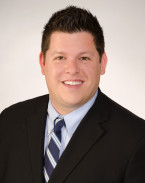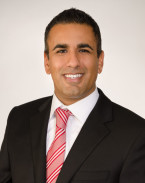Authored By:
Phillip A. Silvestri, Esq.
Senior Counsel
Phillip.Silvestri@gmlaw.com

Nevada Recreational Marijuana: From Initiative to Action
Nevada bucked its conservative roots in passing Question 2 on November 8, 2016. Question 2 presented Nevada’s first efforts at full recreational marijuana legalization since the opening of the medical marijuana market only a year earlier. The measure faced stiff opposition, and passage was far from clear in the months prior to the election. When the polls closed on Election Day, however, Question 2 passed by nearly 100,000 votes.
Now the state will begin drafting the regulations necessary to create a recreational market. The ballot initiative contains many provisions that could impact the opening of recreational dispensaries. It also contains provisions that provide exclusivity to current licensees.
QUESTION 2 – HISTORY
In 2006, Nevada first attempted to legalize recreational marijuana via ballot initiative. The initiative failed by over ten percent. Recognizing the shift in political leanings in Nevada, in 2014 proponents of legalization collected approximately 200,000 signatures to submit an initiative to the state legislature, when only 101,666 signatures were required.
The measure was then sent to the state legislature. The legislature had the opportunity to:
(1) enact the initiative,
(2) do nothing, in which case the initiative is placed on the ballot for the voters’ consideration, or
(3) suggest an alternative, in which case both the original and alternative would be placed on the ballot. The legislature chose option 2, and the measure was placed on the ballot for the voters’ consideration.
Prior to September, 2016, the measure faced virtually no opposition, and all polling showed support for the measure by an average of nearly nine percent. The polls also showed a significant number of undecided voters, however, generally also hovering around nine percent. In September, the opposition movement began to mobilize, supported almost exclusively by casino mogul Sheldon Adelson. Of the $3.47 million raised in opposition to the measure, Adelson contributed $3.35 million, nearly ninety-seven percent (97%).
In late September and October, 2016, the Adelson-owned Las Vegas Review Journal commissioned two separate polls that showed a much closer race. Bendixen & Amandi International reported support exceeding opposition by only one percent in late September, 2016, and only four percent in late October, 2016. Undecided voters totaled seven and eleven percent, respectively, and with a margin of error of three and one half percent, these polls showed a virtual dead heat.
The opposition focused on scare tactics by highlighting the potential legalization of marijuana-infused edibles. Around Halloween the opposition attempted to draw parallels between marijuana-infused edibles and Halloween candy in both television ads and printed mailers. Ultimately, on November 8, Adelson’s polls proved to be misleading, and the opposition ineffective, with the ballot initiative passing by nine percent. In passing the initiative, Nevada became one of four states to legalize recreational marijuana in 2016, doubling the total number of recreational states overnight.
QUESTION 2 – IMPORTANT ASPECTS
Question 2’s passage will require the state to regulate recreational marijuana in a manner similar to alcohol. As of January 1, 2017, it allows an individual over 21 years of age to possess one ounce of marijuana or one-eighth of an ounce (1/8 oz.) of concentrated marijuana. The initiative does not allow the purchase or sale of marijuana except through licensed dispensaries. Limited cultivation for personal use is permitted if a person does not live within 25 miles of a licensed dispensary.
The initiative provides for separate oversight of the program than that of the medical program. While the medical program is administered by the Division of Public and Behavioral Health, the recreational program will be overseen by the Department of Taxation (“DOT”). The DOT must adopt all necessary regulations to carry out the initiative, and begin accepting applications for licenses by January 1, 2018. From the date of adoption of the regulations, current medical licensees will have an eighteen-month exclusivity period under the recreational program.
Licenses will be issued for cultivation facilities, production facilities, testing laboratories and dispensaries like they are issued under the medical scheme. The recreational scheme will also add a separate license for marijuana distributors. All recreational marijuana facilities will be required to utilize a distributor to transfer marijuana between facilities. Distributor license applications will only be accepted from current alcohol distributors licensed pursuant to NRS Chapter 369, unless there are an insufficient number of applicants.
Like the medical scheme, the number retail dispensaries will be limited by the population of a given county. Clark County will be permitted to have up to eighty dispensaries, Washoe County will be permitted to have up to twenty dispensaries, and all other counties will be permitted up to two dispensaries. The number of cultivation and production facilities will not be immediately limited by statute, nor will testing laboratories.
The initiative requires that the DOT enact regulations that allow a medical and recreational licensee to operate out of the same facility. This creates an interesting quandary for dual licensees as medical licensees are not required to utilize licensed distributors to move marijuana between facilities, however recreational licensees are.
Recreational marijuana will be subject to a fifteen percent tax at the cultivation level on the wholesale sale to production facilities or dispensaries. The tax is collected on the market value of the marijuana and will be deposited into the State Distributive School Account in the State General Fund for the benefit of Nevada’s schools, after the payment of administrative expenses. No state-sponsored fiscal impact study has been conducted, but a report commissioned by the proponents of Question 2 projected approximately $20 million per year would be generated for Nevada schools, and over 6,200 new jobs would be created.
QUESTION 2 – IMPLEMENTATION PRIOR TO REGULATION
While Question 2 allows for the DOT to take up to twelve months to establish regulations for licensing of recreational marijuana dispensaries, Nevada legislators are looking into a limited legislative measure to allow adults to purchase recreational marijuana from medical dispensaries prior to the DOT enacting regulations. The measure would presumably follow Oregon’s lead.
In 2014, Oregon passed an initiative to regulate marijuana like alcohol. While official rulemaking was underway, Oregon’s legislature passed an interim bill that allowed current medical marijuana dispensaries to sell to anyone over twenty-one years of age. The initiative imposed a 25% tax on adult-use purchases. The interim bill was designed to undermine the formation of illegal markets and increase tax revenues while rulemaking was underway.
The Nevada legislature will begin its 2017 session of February 6, 2017. It is likely that the democratic majority will advance a bill similar to Oregon’s. If signed into law by Nevada’s republican governor Brian Sandoval, a strong opponent to Question 2, it is possible that consumers will be permitted to purchase recreational marijuana in Nevada in a few short months.
With the passage of Question 2, the Nevada legislature is barred from modifying the initiative through legislation until 2020.
Based on 2014 population of under 55,000 residents. If the population exceeds 55,000, then up to four dispensaries will be permitted.
Greenspoon Marder Nevada
3993 Howard Hughes Pkwy., #400
Las Vegas, NV 89169
702-978-4249 (Office)
954-333-4256 (Fax)





